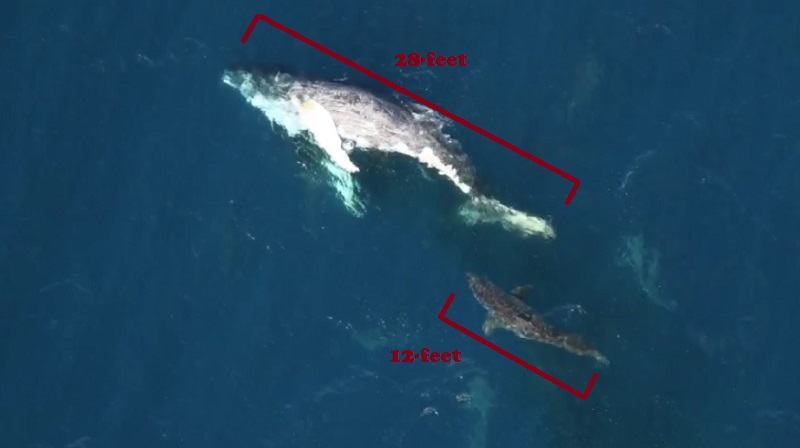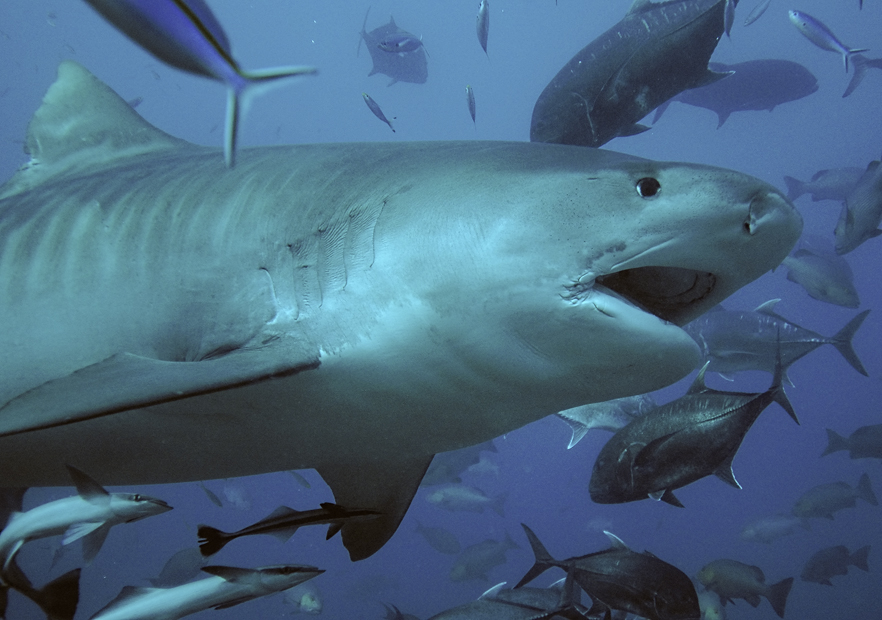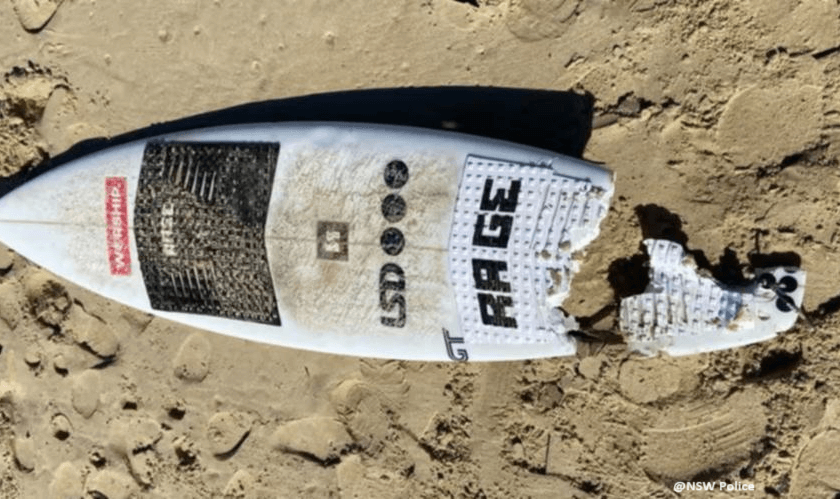Video shared by wildlife biologists from Georgia Wildlife shows sharks scavenging a dead whale located off the coast of Georgia and Florida.
The one-year old humpback whale was first spotted off the coast of Massachusetts last summer when it became entangled in fishing net.
It had also been seen several times over the winter in the south, and observers noted it appeared to be in a sickly state.
The below-average sized whale was photographed swimming on February 20, and was found dead on February 24 off Cumberland, Georgia.
Biologist from the Florida Fish and Wildlife Conservation Commission headed out to the carcass and attached a satellite tracking buoy to the whale’s fin.
An aerial whale survey squad from Sea to Shore Alliance and NOAA spotted the whale carcass again the following day.
The team observed at least ten sharks feeding on the carcass, which left a large oil and blood slick in the water.

Team members photographed the scene where they spotted an estimated 12-foot long great white shark as it bit into the whale.
Biologists from the Georgia Wildlife Resources Division boated to the area February 26 with an underwater camera in hope of learning why the whale died.
Unfortunately, due to the extensive tissue loss caused by sharks, the biologists were unable to find a cause of death. However, they were able to film two sharks as they fed on the whale.
A 9- to 10-foot long female white shark was videoed as it investigated the camera and bit into the whale, along with an estimated 6- to 8-foot tiger shark who also partook of the whale.
Two days later, when the Florida team again checked the whale body, only a bit of blubber and two flippers remained, along with several sharks who were still feeding.
In just five days sharks had taken the 28-foot-long dead whale and reduced it into near nothing.
The final location of the remains confirmed by the tracking device was 18 miles east of Amelia Island, Florida, where a 14-foot white was filmed Saturday, on March 1.
Interestingly enough, a 14-foot great white shark was filmed off Amelia Island on Saturday.
Biologists believe the signal could have been lost as the remaining parts of the whale pulled down the satellite transmitter and sank.
The GPS tracker eventually popped up off the Ponte Vedra Beach, Florida and is ready for re-use.
While the biologists were unable to perform a necropsy on the whale, the footage and time line of the cleaning provides insights.
Sharks are vital to the ecosystem and overall health of the ocean. This event serves as a prime example of why we need sharks. They are the cleaners of the ocean and rid the sea of sick, dying and dead fish.
Those interested in supporting the study of great white sharks in the Atlantic may be interested in the Atlantic White Shark Conservancy.
The organization is located in a prime location at Cape Cod, an aggregation site for great white sharks. While partnering with the Massachusetts Division of Marine Fisheries, it researches and tags great whites in the area using high tech acoustic tags.
Using information gathered from the tags, the group is better able to understand the local and long-range movements of the sharks, estimate the population size, and study their biology and behavior.
In addition the group has curriculum resources for students and STEM-base education material for free.
Updated March 19, 2018


